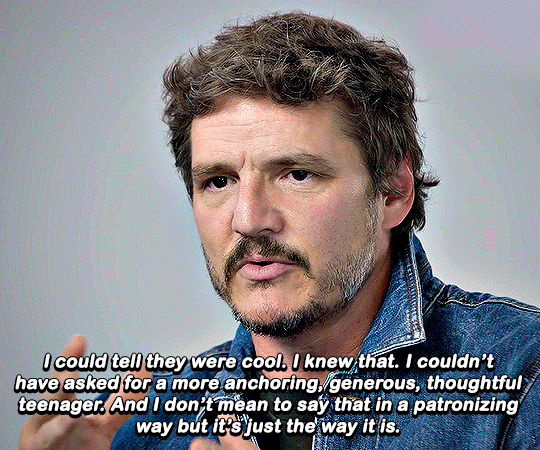Text
Seriously, how was I unaware of this until today? I’ll watch virtually any obscure piece of crap for just a glimpse of any of these three saucy fellows, and there’s a 2015 Agatha Christie adaptation that features all three?
Also, I just found out today that Charles Dance’s real first name is Walter and Sam’s is Nigel. So there’s that, too.

3 notes
·
View notes
Text
Sometimes I don't get all the way through my lectures, so I wrote up some notes for my students to help them study for the exam. So anyone interested gets a free history lesson today. All two of you.
<<Alexander the Great (356 – 323 BCE) was the son of Philip II, King of Macedon (382 – 336 BCE). The Macedonians were northern Hellenic Greeks whose civilization was perceived by the southern Greeks (Athenians, Peloponnesians) as borderline barbaric, although the Macedonians were as invested in Greek culture as any others. The Macedonians were able to rise to power over the southern Greeks partly as a result of the great weakening, militarily, politically, and economically, of the southern Greeks due to the Peloponnesian War.

Philip, a powerful and charismatic warlord, conquered or subdued most of the western Aegean world during his reign. His victory at the Battle of Chaeronea (338 BCE) assured the submission of Athens, a southern Greek city-state Philip greatly admired. By this point, Philip’s son Alexander was participating in military campaigns, having been taught philosophy by Aristotle of Athens and having learned rigorous Spartan military techniques from his mother’s southern Greek relatives. Alexander’s natural charisma and leadership ability, combined with unusual skill and luck on the battlefield, led to him being considered by Philip and most others as the heir-apparent, despite his relatively small stature and the existence of legitimate alternatives. When Philip was assassinated in 336 BCE, Alexander moved quickly to seize power, eliminating or disempowering all rivals. For his first two years as king of Macedon, Alexander consolidated the Greek empire Philip had built and established his firm control over the army. Then, in 334, he set out to the east to initiate his father’s ambition of conquering the Achaemenid (Persian) Empire.
Alexander’s campaigns in the east lasted the remainder of his life, more than ten years. In this time, the young king conquered and ruled over an empire of unprecedented size and diversity, from the Greek city states of the west to the Ganges River civilizations of the east, and south to Egypt. Alexander’s success in battle was a result of a ruthless, clever strategy of offering every major city-state the chance of a peaceful surrender, to which he would hold his troops accountable, or, if the citizens chose to defy him, to crush their resistance without mercy. As the Plutarch source you are reading emphasizes, Alexander could be kind and gentle on the one hand and absolutely brutal on the other, without seeming to lose the loyalty of his army. Alexander led campaigns personally and was frequently in physical danger, but very rarely wounded. He was perceived as lucky and brave, and his men were fanatically loyal.
Alexander’s rule over this vast empire was achieved through the establishment of a centralized bureaucracy that relied heavily on his loyal retainers left behind in major population centers. Alexander required his men to marry into the local populations, so that city leaders would have a family tie to his rule and be more likely to oppose rebellion. Alexander himself married three times, as Macedonian custom did not forbid multiple marriage. In his personal life, Alexander was almost certainly bisexual, having been known to have male lovers who accompanied him on his campaigns for most of his adult life. However, his marriages to women were fruitful and he was reputed to admire beauty in any form.
The tremendous loyalty and love Alexander inspired can be observed in Plutarch’s story about his acquisition of his famous war horse, Boukephalos/Bucephalus (ox-head). Alexander tamed a horse no one else wanted and kept that horse with him for most of the rest of his life. When Bucephalus died, shortly before Alexander, the king threw him a funeral to rival that of royalty.
As Alexander made his triumphant way south toward Egypt, he found he didn’t always have to fight, as his reputation preceded him. Culturally, he was very open-minded and tended to enthusiastically adopt his favorite customs of the new peoples and civilizations he encountered. He won virtually every battle he fought and often endeared himself to locals who despised the Persians. This was particularly true in Egypt, where he stayed for some time and was even declared pharaoh, a living god, by the priests. In Egypt, he founded a capital city in the swamplands of the delta region of Lower Egypt and, as was typical, named the city after himself. It is still called Alexandria, and it became one of the great cities of the ancient world. Alexander is buried somewhere in it.
Alexander turned his attention to Darius III, King of Persia. Having defeated Darius’ numerically superior forces several times, forcing the king to flee, Alexander took over Mesopotamia and the entire eastern half of the Persian Empire before Darius was finally captured and killed by his own men. Alexander’s key to success in his Persian campaigns appeared to be the speed and unpredictability of his military movements. While Darius had a massive court that took days to move a few miles, Alexander required few luxuries and moved much more quickly. After Darius’ death, Alexander had himself declared Darius’ heir and king of the Persians. In this capacity, he subdued the rest of the Persian Empire all the way to the Ganges River.
There, despite Alexander’s desire to cross the vast river and conquer the mysterious civilizations of the Far East, the young king faced mutiny for the first and last time. His troops, previously so loyal, refused to participate. They feared the unknown, were tired of fighting, and longed to go home. Heartsick, Alexander agreed, but continued to campaign and led the way back west through brutal desert, losing much of his army along the way.
Alexander died shortly after returning to Mesopotamia in the city of Babylon, in the fabled palace of Nebuchadnezzar II. He was known to be sick for two weeks before his death, but rumors of poisoning persisted, despite it being very unlikely that such a long-acting poison would be effective or known. After his death at the age of 32, his leading generals quickly eliminated their rivals, including Alexander’s surviving wives and offspring, and divided up his empire among themselves into several large kingdoms.
The post-Alexander period is often called the Hellenistic Era. While “Hellenic” means “Greek,” “Hellenistic” means “influenced by Hellenic Greek culture.” Therefore, the Hellenistic world is the one created by the blending of the Greek cultures of the Aegean with the various other cultures (Persian, Mesopotamian, Egyptian, Semitic, etc.) of the regions Alexander conquered. The cultural center of the Hellenistic world was in Alexandria, Egypt. Egypt was ruled by descendants of Alexander’s general Ptolemy, founding a Macedonian dynasty that would reign over Egypt for the next 300 years. Although Alexander had died in Babylon, his body was eventually moved to Alexandria, Egypt, where it was reported to have been seen as late as the Roman era. It is now lost to history, as Alexandria is a sea-level city and the ancient palace complex is very difficult to excavate, given the water table.
The city of Alexandria became home to the great library, essentially an ancient university system that housed not only the most important books of the ancient world (up to 500,000 hand-written scrolls and codices), but also became a research and development facility for scientists, philosophers, and technicians of the age. Geographers accurately estimated the circumference of the world. Astronomers traced the paths of planets and mapped the stars. Physicists discovered principles and formulas that would continue to be used into the Newtonian era.
Throughout the Hellenistic world, a simplified form of Greek called koine was spoken and written as a business language, regardless of local speech. Metal currency was used as a medium of trade, which flourished throughout this enormous area, creating a highly cosmopolitan blended civilization that characterizes the Hellenistic Era.
However, any romantic attachment to the ideals of Athenian democracy was essentially pointless sentimentality. Alexander, for all of his good qualities, was a tyrant and a despot. His successors were also uncompromising monarchs, more like the Persian king Alexander had replaced than the Athenian politicians Aristotle had taught him to admire. Philosophical traditions of the Hellenistic era reflect this change in ideals about government. Philosophers seemed more interested in discovering how to cope with a world beyond their control than in perfecting a world they understood. Hellenistic philosophy in general reflects a withdrawal from political activity and a resignation to the fact that humans had little say in their own destiny.
Epicureanism was one Athenian philosophy that took this approach. Based on the teachings of Epicurus (341 – 270 BCE), Epicureanism took after Aristotelianism somewhat in that moderation was considered the key to a successful life. Epicureans believed that misery was due to excess. Therefore, pleasure should be pursued, but in a cautious and temperate way. Avoiding pain was paramount, and overindulgence in pleasure usually produced pain. Life, therefore, was an exercise in avoiding those things that cause fear or anxiety. Since fear of death can destroy a person’s happiness, Epicurus taught that it made no more sense to fear death than it did to fear the world that existed before you were born.
Stoicism was another major philosophical movement of the Hellenistic world. This school of Athenian philosophy was founded by Zeno (334 – 262 BCE), who believed in the existence of the logos (universal reason or truth) as the force that unifies all things. Since all misery stemmed from being out of balance with the logos, Stoics avoided excessive attachment and the violent emotions that came with it, practicing fortitude and self-discipline when confronted with problems. Thus they developed a reputation for being unemotional, when in truth they were simply learning to control their emotional responses to avoid losing their connection with the logos.
Skepticism was another approach to dealing with an uncertain world. We know less about this philosophy’s Hellenistic version because most of the writings of its practitioners have been lost, but the basic idea of skepticism is that nothing is certain and knowledge is not really possible. Thus, in order to achieve tranquility, one must exist in a constant state of doubt. Nothing should be taken for granted and all things should be questioned. Socrates was an early skeptic in many ways, but the Hellenistic practice of skepticism was different in that Socrates believed truth and morality existed; skeptics of the Hellenistic period were not certain of anything.
Cynicism is the most extreme of the Hellenistic philosophies. A cynic's goal was to live a virtuous life in harmony with nature, which was only possible through rejection of distracting comforts. Cynics believed all unhappiness came from attachment, because anything you are attached to can be lost. Therefore, to preempt misery, one should simply avoid all attachment and attempt to live a self-sufficient life in harmony with nature. Social customs and proprieties were limiting and meaningless. Cynics were often loners, since human company can lead to attachment, and their bizarre behavior was difficult to live with. They tended to dress, eat, and live at the extreme edge of poverty, since comforts could also lead to attachment. Practically the only pleasure Cynics allowed themselves, since it was harder to take away, was the exercise of their own minds through study and contemplation. The most famous cynic of the Alexandrian period was Diogenes, who lived in a ceramic jar and begged on the streets of Athens.
All of these Hellenistic philosophies lack the optimistic certainty that society and the individual can be perfected that characterized classical philosophy. Hellenistic thinkers were more concerned with how to survive a world they don’t control than with how to create a better world. Democracy was a distant memory; living under the rule of tyrants was the expectation of the Hellenistic world.>>
3 notes
·
View notes
Text
Second breakfast.

9 notes
·
View notes
Text
For your enjoyment: Mr. Aidan Turner, aka Ross Poldark, aka Kili.

149 notes
·
View notes
Text

Soft, cushy cat bed? No thank you.
Stack of old magazines right next to it? Yes, please!
- Calliope (aka da Baby, aka Skrunk)
4 notes
·
View notes
Text

It’s actually the parking garage of the KCPL, but the library is pretty cool, too. I wonder what Republicans see when they drive past this? Woke liberalism, probably.
Libraries. They’re cool. Don’t vote for people who want to defund them.
0 notes
Text

Happy Caturday from Skrunk (Calliope).
1 note
·
View note
Photo
Truth.

Republicans are garbage, and the people who vote for them are stupid as fuck.
3K notes
·
View notes
Text
Dear My Generation,
Not everything is for us. But if we let go of the delusion that it is, we can enjoy a lot more.
PS - we drive stick shift and write in cursive because that was the norm when we were learning, not because we were smarter or cooler. Technology has moved on. We can enjoy our memories and cute retro skills without turning it into a criticism of those who had better options.
“Prominent genre brands like Star Wars, or Marvel, or Lord of the Rings also have the difficult task of creating content for children while still satisfying their middle-aged stalwarts, whose nostalgia is ultimately insatiable because they cannot look upon novel material with the same emotional intensity they felt as children. Many older fans are convinced they can’t recapture that intensity only because the producers themselves have failed to create stories of the same fundamental quality, when in reality they have simply outgrown the sentiment they are chasing. These campaigns seek to convince this audience that the feeling they are pursuing can be recaptured, if only those making popular art would reject modern progressive dogma—thus creating a well of cultural resentment they can manipulate for political purposes.
That is the deception of this campaign, which is not about protecting the integrity of art at all, but ensuring it serves a particular political purpose. In other words, these critics seek to turn art into propaganda for one cause rather than another. Maybe it’ll actually work. But even if it does, it will not make Star Wars, Lord of the Rings, or any of the other stuff you liked as a kid Great Again, at least not in the way you want. People hoping otherwise will just have to grow up.”
— Adam Serwer, Fear of a Black Hobbit
8K notes
·
View notes
Text
Peter Pettigrew must have had the sharpest knife ever forged to sever a hand at one blow from this angle.

0 notes
Text
Elon Musk is a neo-Nazi in a libertarian suit.
“A leaked internal Twitter message appears to show that Elon Musk directly ordered staff to suspend a left-wing activist’s account on the social-media platform. Bloomberg said it viewed a screenshot of the message in question, involving the account of Chad Loder, which read: “Suspension: direct request from Elon Musk.””
—
Leaked Twitter Message Suggests Musk Ordered Leftwing Account Freeze
Elon Musk is a fascist white supremacist.
901 notes
·
View notes








